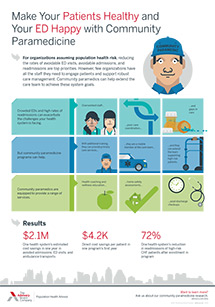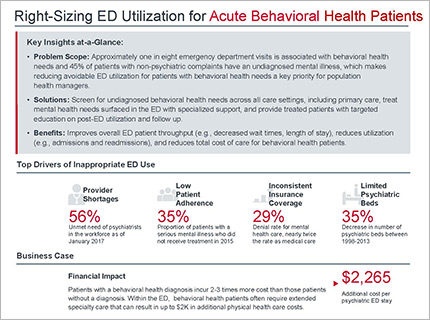Auto logout in seconds.
Continue LogoutOn this week's "60 Minutes," Oprah Winfrey reports on childhood trauma and how a "revolutionary" approach called trauma-informed care can reframe conversations about negative childhood experiences and help people overcome that trauma as an adult.
For the segment, Winfrey travels to Milwaukee, one of the lowest-income cities in the country, where she grew up and had what she describes as "a lot of negative experiences." Winfrey grew up poor, and she experienced sexual abuse.
Winfrey's segment was inspired by a series from the Milwaukee Journal Sentinel, which similarly examined trauma-informed care in the city.
About trauma-informed care
The trauma-informed care approach focuses on understanding the experiences that shaped a person's behavior before trying to change the behavior itself. Winfrey put it this way: "It comes down to the question of not, 'What's wrong with you?'" but rather, "'What happened to you,' which is a very different question."
One component of the trauma-informed care approach is the adverse childhood experiences (ACE) test, which asks 10 questions about a person's family home during childhood. The questions cover several topics, such as whether a child experienced physical abuse or whether a member of the household was incarcerated.
A high score on the test correlates with physical and mental health conditions later in life. For instance, a high ACE score is linked with a higher likelihood of depression and a reduction in life expectancy of up to 20 years.
Bruce Perry, a psychiatrist, neuroscientist, and leading expert on childhood trauma, told Winfrey, "If you have developmental trauma, the truth is you're going to be at risk for almost any kind of physical health, mental health, social health problem that you can think of." He added, "That very same sensitivity that makes you able to learn language just like that as a little infant makes you highly vulnerable to chaos, threat, inconsistency, unpredictability, [and] violence."
According to CDC, one in eight children experiences trauma to a degree that can cause lasting damage.
Trauma-informed care in action
SaintA, a children's social services agency in Milwaukee, adopted a trauma-informed care approach about a decade ago, after Tim Grove, the agency's clinical director, heard Perry speak.
Once SaintA's staff started using the method, Grove said, "Our staff came back to us and said ... 'We're starting to get this and we're seein' some remarkable things happen, but you gotta work on that teacher [who doesn't know about this approach]. You gotta work on that cop who just came and screwed everything up.'"
In response, SaintA started training others in the method, Grove said. Today, more than 50,000 people have gone through SaintA's curriculum.
Alisha Fox, age 21, received trauma-informed care at SaintA after being sexually abused and raped by her father from age four to 14. Her ACE score was nine on the 10-point scale. She was experiencing post-traumatic stress disorder and was "acutely suicidal," according to Grove.
Reflecting on how she felt when she came to SaintA, Fox, who's now in college, said, "I felt that somebody understood. That they knew where I was coming from. That it wasn't just another person just tryin' to talk to me to calm me down for that moment. That they had done their homework and that they really wanted to help."
In addition, SaintA's runs a trauma-sensitive charter school and works with the Milwaukee Police Department's trauma response unit as well as judges in the city's juvenile court. "What the judge now knows is to ask a child, 'What happened to you?' before asking, 'What's wrong with you?'" Grove said.
The trauma-informed care approach is also in use at Milwaukee's Nia Imani Family Center, which provides transitional housing to women and children. Belinda Pittman-McGee, who runs Nia Imani, said, "I couldn't help anyone if I didn't go back and learn about what happened to them."
Oprah's reaction
Oprah in a separate interview on CBS said that reporting the story was "life-changing" for her. She said she gained a newfound understanding of childhood trauma that has "definitely changed" how she understands people. She also said she wants the approach to inform how her school in South Africa runs and how she directs her philanthropic efforts in the future.
Winfrey said, "This story is so important to me and I believe to our culture that if I could dance on the tabletops right now to get people to pay attention to it, I would" (Winfrey et al., CBS News, "60 Minutes," 3/11; McCandless Farmer, CBS News, "60 Minutes Overtime," 3/11; CBS News, "CBS This Morning," 3/6; Schmid, Milwaukee Journal Sentinel, 3/10; Schmid, Milwaukee Journal Sentinel/USA Today, 3/7).
Next, get primers for reducing avoidable ED utilization
Are specific patient populations making up a significant proportion of your ED visits? Each installment in our Right-Sizing ED Use primer series takes a lens to one of these frequent user subgroups.
We analyze the reasons these patients seek care in the ED, the business case for intervening, and solutions for reducing unnecessary ED use. The primers also feature in-depth case studies which highlight the operational details of successful and targeted programs from leading health care organizations.
Don't miss out on the latest Advisory Board insights
Create your free account to access 1 resource, including the latest research and webinars.
Want access without creating an account?
You have 1 free members-only resource remaining this month.
1 free members-only resources remaining
1 free members-only resources remaining
You've reached your limit of free insights
Become a member to access all of Advisory Board's resources, events, and experts
Never miss out on the latest innovative health care content tailored to you.
Benefits include:
You've reached your limit of free insights
Become a member to access all of Advisory Board's resources, events, and experts
Never miss out on the latest innovative health care content tailored to you.
Benefits include:
This content is available through your Curated Research partnership with Advisory Board. Click on ‘view this resource’ to read the full piece
Email ask@advisory.com to learn more
Click on ‘Become a Member’ to learn about the benefits of a Full-Access partnership with Advisory Board
Never miss out on the latest innovative health care content tailored to you.
Benefits Include:
This is for members only. Learn more.
Click on ‘Become a Member’ to learn about the benefits of a Full-Access partnership with Advisory Board
Never miss out on the latest innovative health care content tailored to you.



